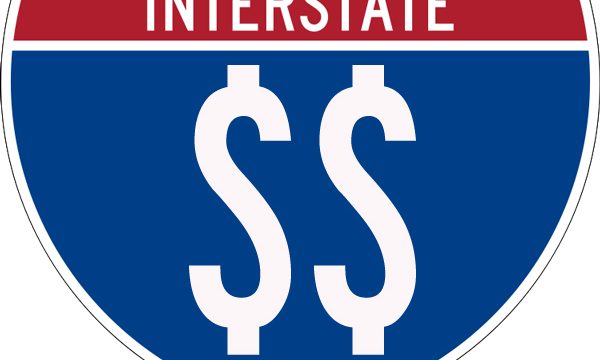Mississippi Transportation Commission: Highways in dire need of more funds

CHA-CHING: The Mississippi Transportation Commission is advocating for an increase in the state’s 18.78 cents-per-gallon gasoline tax.
By Steve Wilson | Mississippi Watchdog
The Mississippi Transportation Commission isn’t shy about asking for more money for the state’s highways, which may result in drivers paying more at the pump.
Four-term commissioner Dick Hall, a Republican who represents the Southern District, said the Mississippi Department of Transportation needs $400 million more per year to get the state’s highways back in shape. The increase could take the form of a larger gas tax, a vehicle miles traveled tax, the return of $300 million that was moved from the state highway trust fund to the general fund or a bond issue.
“This is up to the Legislature to decide,” said Hall, the commission’s chairman. “I don’t know if there needs to be a gasoline tax increase or what kind of revenue. All I’m trying to do in my crusade is explain the situation to people so our highways don’t end up looking like the city of Jackson’s streets. When you make major capital investments, like our transportation infrastructure, you’re an idiot if you don’t take care of that. A prudent businessman wouldn’t do that and a prudent government shouldn’t do that either.”
According to a report by TRIP, a nonprofit Washington, D.C.-based transportation advocacy group, 25 percent of Mississippi’s rural roads were rated in poor condition, which means they show signs of deterioration, such as rutting, cracks and potholes. According to the report, in most cases roads in this condition require total reconstruction. Fourteen percent of the state’s bridges are considered to be deficient, meaning they are posted for lower weight limits and have significant wear on the bridge deck and supports.
Hall said it’d take $500 million just to repair the state’s bridges, while another $1 billion dollars would be needed to rehabilitate and expand the state’s 1,400 miles of highway.
“Right now, we’re just holding things together,” Hall said of the department’s highway budget. “We’ve got $50 million in construction this year, which is almost nothing. Almost all of our budget is being spent on maintenance.”
The last big state highway expansion was in 1987, when the state built more than 1,000 miles of four-lane highway. The gas tax was increased in 1987 to pay for the new roads — along with a $5 car tag fee, a highway contractor’s tax, federal aid and revenue bonds — and it hasn’t been increased since. Hall said construction costs since 1987 for highways have increased 300 percent.
The state charges an 18.78 cents-per-gallon tax on gasoline, the seventh lowest in the nation, according to the American Petroleum Institute. Mississippi residents pay 37.18 cents per gallon in state and federal taxes, lower than the combined national average of 49.28 cents and the regional average of 38.49 cents.
The Mississippi Legislature seems unlikely to go along with a tax increase, with both Lt. Gov. Tate Reeves and House Speaker Philip Gunn indicating they’d like to consider some tax cuts going into an election year.
Reeves supports more funding for what he considers vital infrastructure.
“Providing public infrastructure is one of the fundamental responsibilities of government,” Reeves said. “And it is no secret that previous legislatures have fallen short in meeting this goal. I believe we must invest more money in roads, bridges, and water and sewer systems; and I look forward to seeing the current assessment being performed by the Mississippi Economic Council.
“I do not expect to see much support for raising the gas tax from legislative leaders.”
John Bowman, communications director at the National Motorists Association, said the gasoline tax is the fairest way to pay for roads and bridges. The NMA, an advocacy group for drivers, doesn’t support any of the alternatives, such as a VMT, which would require potentially intrusive monitoring equipment.
“Plugging transportation funding gaps calls for raising the fuel tax and making sure that revenue generated for transportation projects actually goes toward those projects,” Bowman said. “Public officials should also consider a fee for electric and hybrid vehicles that use the public roadways, but do not contribute their fair share via the fuel tax. It’s equitable — users pay in direct correlation to the transportation services they use.”
Get regular updates on Mississippi through our Facebook or Twitter accounts







